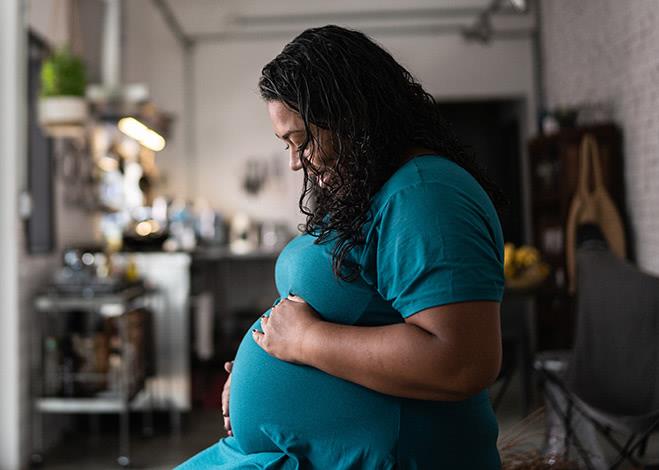
Understanding Black Maternal Mortality
Public scrutiny over the alarming state of Black maternal health in the U.S. has grown in recent years, especially as more people share their experiences.
Legendary athlete Serena Williams recently detailed the harrowing health complications she faced after the 2017 birth of her first child, and how she had to advocate for herself to get lifesaving care in the hospital. Earlier in 2017, Shalon Irving, an epidemiologist with the Centers for Disease Control and Prevention, died due to complications from postpartum high blood pressure, her story highlighting the disparities connected to Black maternal mortality rates.
Women are more likely to die from complications related to pregnancy or childbirth in the U.S. than in other developed countries such as France or Canada. The outcomes for Black women are even more concerning, as they are three times more likely to die from a pregnancy-related issue than white women, according to the CDC.
Black maternal health is an important issue that local, state and federal governments, healthcare organizations, advocacy groups, communities and families are working to improve by addressing and eliminating the disparities that impact it, starting with awareness.
Factors driving racial disparities in maternal health
The CDC cites multiple factors that contribute to the racial disparities in maternal health, including structural racism, implicit bias, lack of access to quality healthcare and underlying chronic conditions.
American history – and the history of gynecology – have created an enduring legacy of medical racism. James Marion Sims, the 19th-century physician known as the “father of modern gynecology,” experimented on enslaved women without anesthetics. Myths around thickness of skin, pain tolerance and other physical attributes of Black individuals persist to this century.
A 2019 study found that Black women experienced unequal assessment and treatment of their pain after a cesarean childbirth compared with white women. “Racism, not race, drives health inequities and leads to adverse health outcomes,” the American College of Obstetricians and Gynecologists said in a statement last year.
Access to consistent insurance can affect a person’s ability to get quality healthcare, too. Black women experience higher rates of uninsurance, from preconception to postpartum. People who live in rural areas can have trouble finding providers close to home, such as primary care providers and obstetrics and gynecology specialists. Underlying chronic conditions such as heart disease, hypertension and diabetes also can seriously affect pregnancy and childbirth.
Moving toward action on how to reduce Black maternal mortality
The calls to improve Black maternal health across the country continue to grow, especially amid increased legislative action.
There are also educational campaigns. Black Maternal Health Week, founded and led by advocacy group Black Mamas Matter Alliance, runs annually from April 11-17. The White House officially recognized the week in 2021. April is also National Minority Health Month.
Ongoing media coverage includes emerging documentaries that share Black women’s perspective on motherhood, such as “Stories of Black Motherhood” and Oprah Winfrey’s OWN channel series “We are the Faces of Black Maternal Health.”
Social media users, many of whom are healthcare professionals, are also spreading awareness and sharing resources.
"This study is novel because it’s the first of its size to show how the risks of childbirth vary by both race and parental income, and how Black families, regardless of their socioeconomic status, are disproportionately affected."
— Black Maternal Health Caucus (@BMHCaucus) March 13, 2023
https://t.co/LUEUOixZGC
A study looking at Black birthing individuals experience with care during the COVID-19 pandemic found that individuals experienced heightened exposure to racism during the pandemic. https://t.co/meoJ7Iu6aB
— Maternal Health Hub (@maternal_hub) March 10, 2023
These campaigns help us understand that a full systemic overhaul is needed to improve the quality of Black maternal health. That will take time, but there are actions expectant parents can take now.
Maternity care requires a lot of education and preparation, but to specifically address Black maternal health, you can work with your provider to create a birth plan that takes into account how racism could impact pre- and postnatal care. Consider assembling a care team that can help you advocate for your health — perhaps a doula or certified nurse midwife could provide additional needed support.
For healthcare providers, the CDC advises recognizing unconscious bias in their care and working to improve the delivery of prenatal and postpartum care. Collecting and addressing social determinants of health data can help to improve health equity.
Ultimately, we must all work together to affect wide-scale change to reduce Black maternal mortality and ensure that a healthy pregnancy is possible for everyone.



